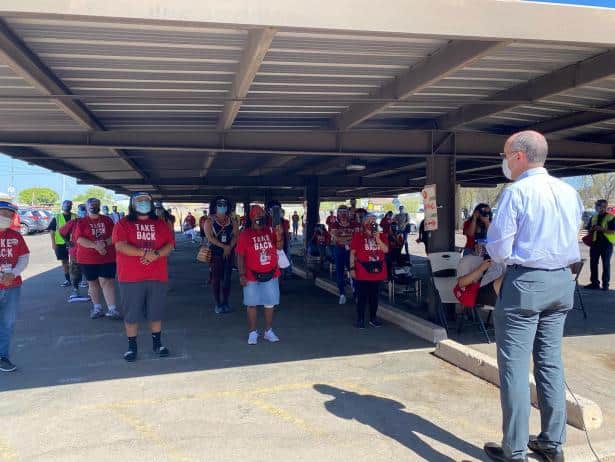Maxwell Ulin is a student at Harvard Law School.
On Wednesday, rideshare drivers lost their case in California state court to restrict Uber from using its app to disseminate political messaging in favor of Proposition 22, a ballot measure bankrolled by several rideshare companies to reverse California’s decision to reclassify drivers as employees. San Francisco Superior Court Judge Richard Ulmer held that drivers failed to prove standing for lack of concrete injury, and that restricting Uber actions would abridge the company’s First Amendment right to speech. Uber is not out of the legal woods yet, though; this past Monday, drivers filed a separate class action lawsuit in federal court complaining that the company stands in violation of the Civil Rights Act for firing drivers based on the app’s passenger ratings system that the company knows is discriminatory. Both lawsuits have taken place before the backdrop of rideshare companies’ statewide initiative, which recent polls show is facing uncertain prospects on Election Day.
California is not the only state with landmark employment laws on the ballot, of course. Voters in Colorado, for example, will vote next month on whether to require businesses of over nine employees to pay into a state-run 12-week paid family and sick leave program for workers. The measure, which would impose a 0.9% payroll tax on employers, would allow employees to receive up to $1,100 per week in benefits within the first year of the program. In Florida, meanwhile, a proposed constitutional amendment would raise the state’s minimum wage to $15 per hour over the next five years and then tying the wage floor to inflation. Academics note that increasing the minimum wage can have a profound effect on reducing the racial wage gap, particularly for Black workers.
As we enter the final days of the U.S. presidential campaign, frontline workers have again entered the spotlight—not as victims of pandemic, but as activists mobilizing Democrats to win. In Nevada, Florida, Pennsylvania, and Arizona, thousands of former hotel and restaurant employees laid off during the pandemic have taken up new work as canvassers and field organizers for UNITE HERE’s nationwide campaign operation. By pioneering a novel, COVID-safe approach to door-knocking, the hospitality workers’ union has come to play an outsized role in field operations this year after national Democrats abandoned in-person canvassing. The attention comes as new polls indicate that Democratic turnout may be lagging in several key states leading up to the final day of voting.






Daily News & Commentary
Start your day with our roundup of the latest labor developments. See all
July 14
More circuits weigh in on two-step certification; Uber challengers Seattle deactivation ordinance.
July 13
APWU and USPS ratify a new contract, ICE barred from racial profiling in Los Angeles, and the fight continues over the dismantling of NIOSH
July 11
Regional director orders election without Board quorum; 9th Circuit pauses injunction on Executive Order; Driverless car legislation in Massachusetts
July 10
Wisconsin Supreme Court holds UW Health nurses are not covered by Wisconsin’s Labor Peace Act; a district judge denies the request to stay an injunction pending appeal; the NFLPA appeals an arbitration decision.
July 9
the Supreme Court allows Trump to proceed with mass firings; Secretary of Agriculture suggests Medicaid recipients replace deported migrant farmworkers; DHS ends TPS for Nicaragua and Honduras
July 8
In today’s news and commentary, Apple wins at the Fifth Circuit against the NLRB, Florida enacts a noncompete-friendly law, and complications with the No Tax on Tips in the Big Beautiful Bill. Apple won an appeal overturning a National Labor Relations Board (NLRB) decision that the company violated labor law by coercively questioning an employee […]